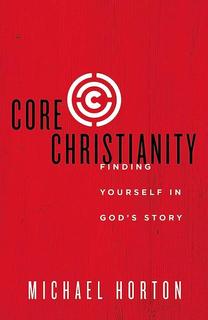Many people are leaving the church today because the alternative dramas of this fading age have captured their desires. I’m thinking especially here of my own western context, but modernity is a global phenomenon. There are some good exceptions, but a genuine understanding of our culture at this particular time in its history, and the role of the church within that context is rare. By and large, you either join the “Red Team” of culture-despisers (at least despisers of high culture, while wallowing in pop culture) or the “Blue Team,” selling their soul for acceptance on terms tantamount to surrender.
I don’t think that everyone has to be a cultural analyst. A pastor has more important things to do, like caring for Christ’s sheep, but part of that care is to recognize some of the reasons why many people find the Christian story non-compelling and why they find certain other big stories meaningful. Increasingly, many churches themselves don’t see the gospel as the way you not only get people in but keep them in the faith.
I don’t think that if we just preach the gospel, folks will flock in droves. That doesn’t always happen. But if we don’t treat the gospel as the message that creates and grows the church, we can be sure that such a church—big or small—isn’t part of Christ’s kingdom but someone else’s.
But it’s not enough for the church to get the message right. Medieval knights cried “Christ is Lord” while cleaving the skull of an infidel in the crusades. The church has to be the embassy of Christ’s kingdom where an unbeliever can actually say, “There’s a fit between what they say—for example, speaking of God’s grace, mercy and love in Christ—and the kind of community this is.”
If it’s a nest of backbiters and gossips, whatever they mean by “saved by grace” isn’t what the New Testament means. If they’re arrogant toward other sinners (even fellow Christians) because, ironically, they know that they’re totally depraved and have no basis for spiritual pride, that’s just weird. And it’s sin to be repented of. Let’s come to unbelievers as forgiven sinners, the prodigal son in Jesus’ parable, not as the contemptuous elder brother.
Most evangelical young people are unchurched by their sophomore year in college, we’re told. That’s scandalous. Why do they find these other stories compelling, worthy of ditching the “in Christ” story into which they’ve been baptized and nurtured through catechesis and preaching for another “in Adam” story of this passing age? Are we really immersing them in it? Is the ministry of Word and sacrament being executed faithfully? And not just from the pulpit, font, and table, but in our youth groups, family camps and regular interactions throughout the week?
We have to stop taking the young people in our church for granted. They are not “The Church of Tomorrow,” but part of today’s church, the sheep Christ calls us to feed and care for. They need more apologetics than pizza, more opportunities for genuine questioning and having their questions answered than rock concerts. But they also need their church to be a “plausibility structure” that displays the truth of the gospel. That doesn’t mean a community of the perfect or the know-it-alls (that will only lead to disappointment, despair, and cynicism), but of sinners who return each week together to repent and believe the gospel and be bound together in a fellowship of pilgrims.
This excerpt is taken from How to Engage the Culture Without Losing the Gospel.






